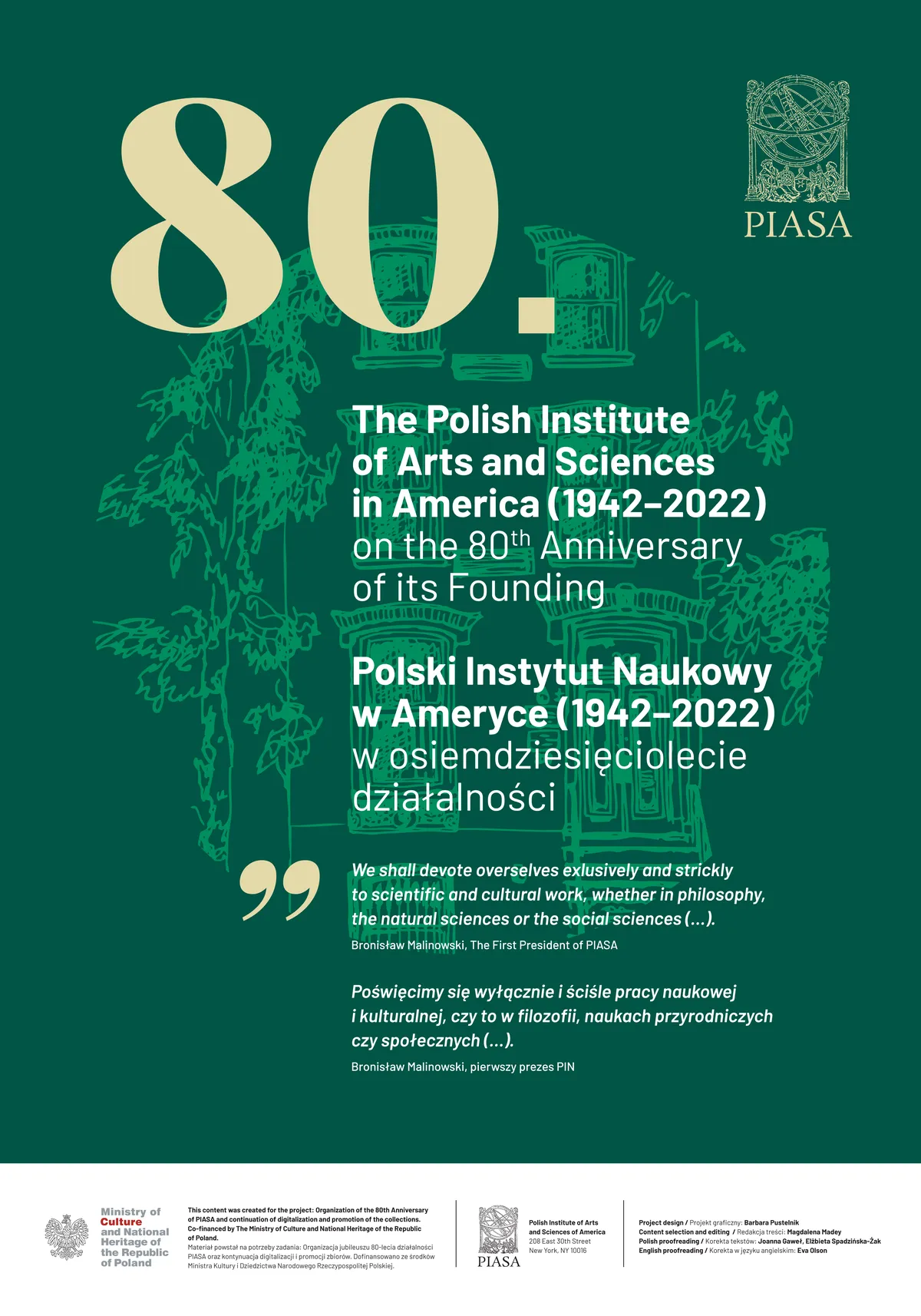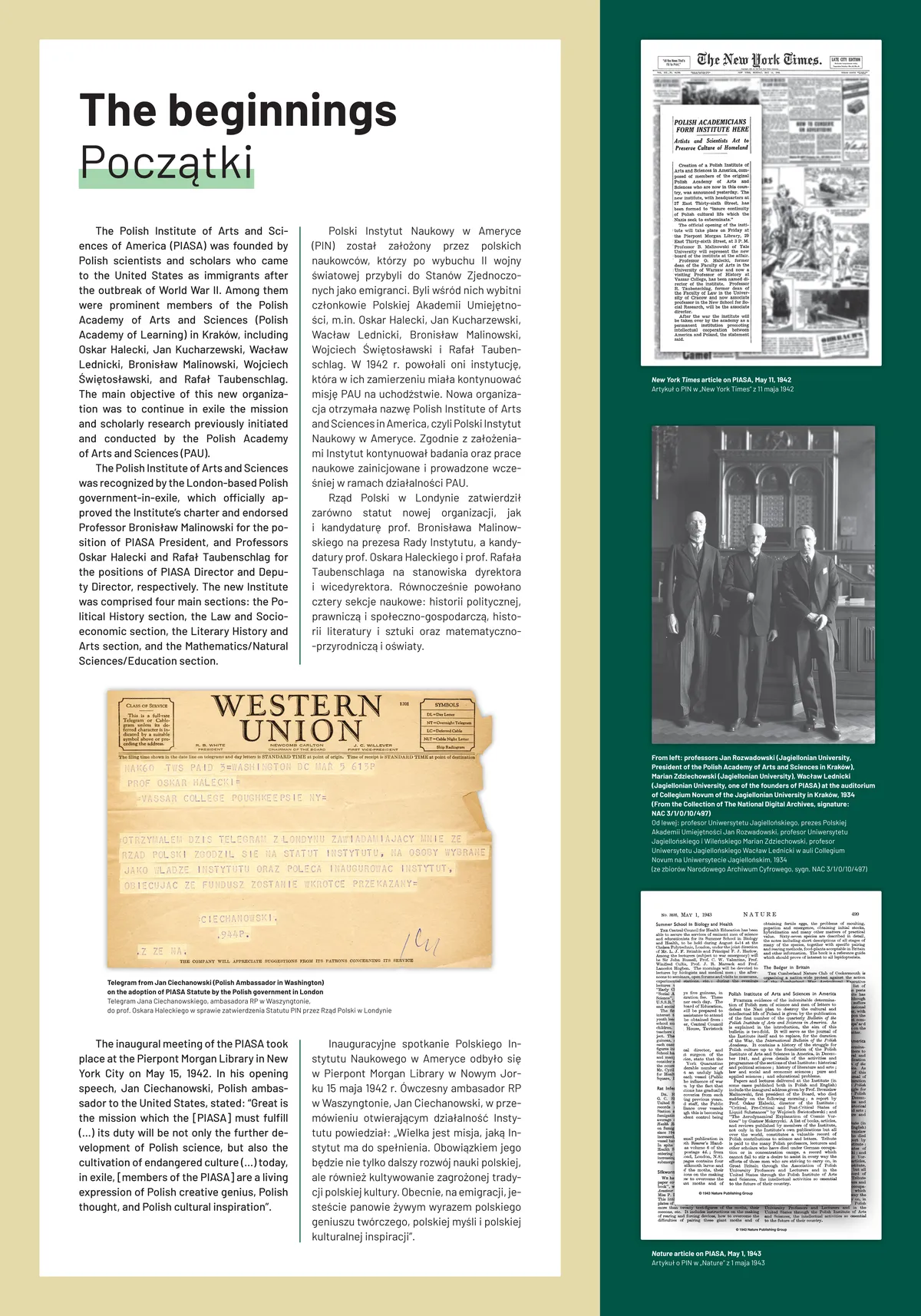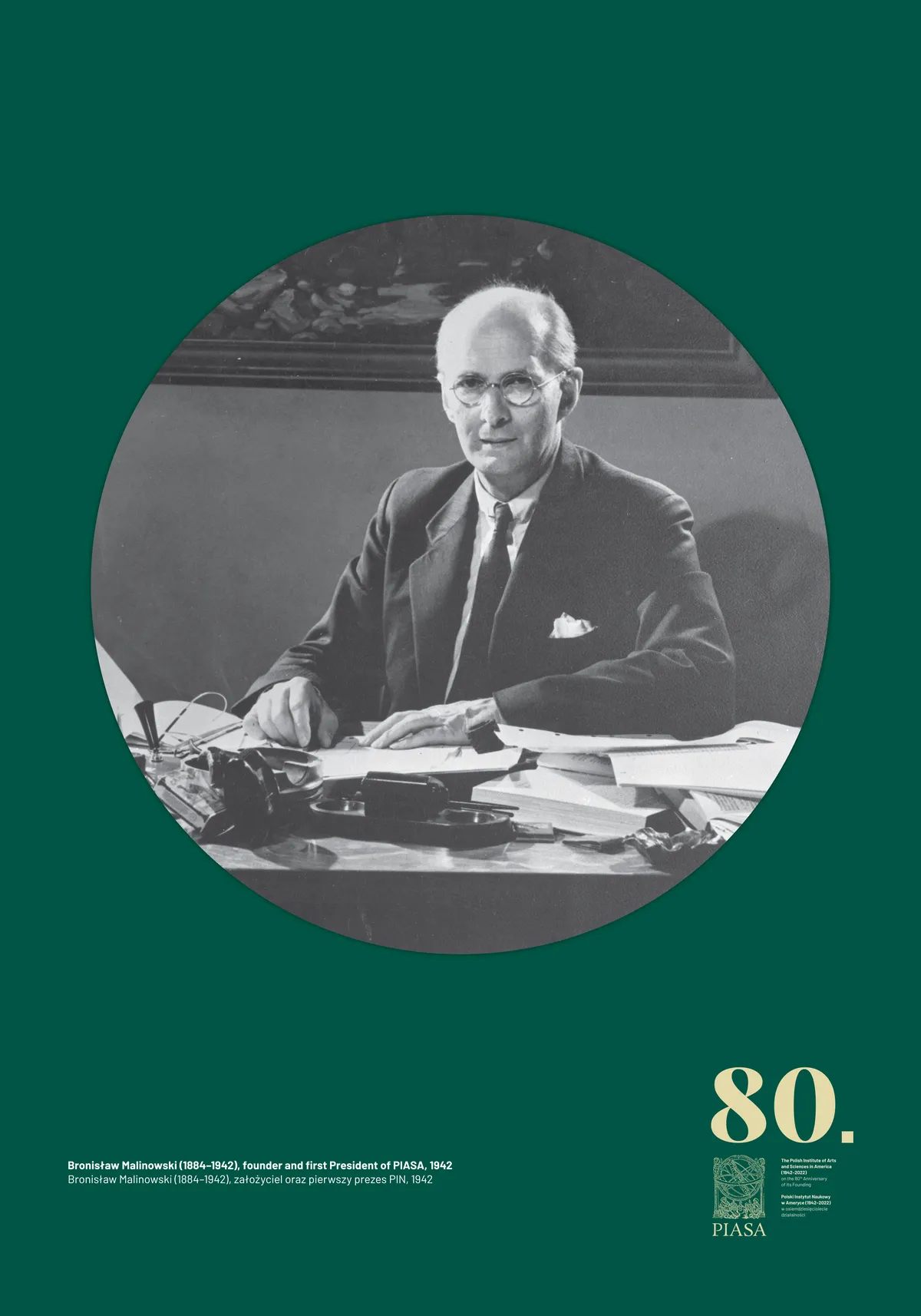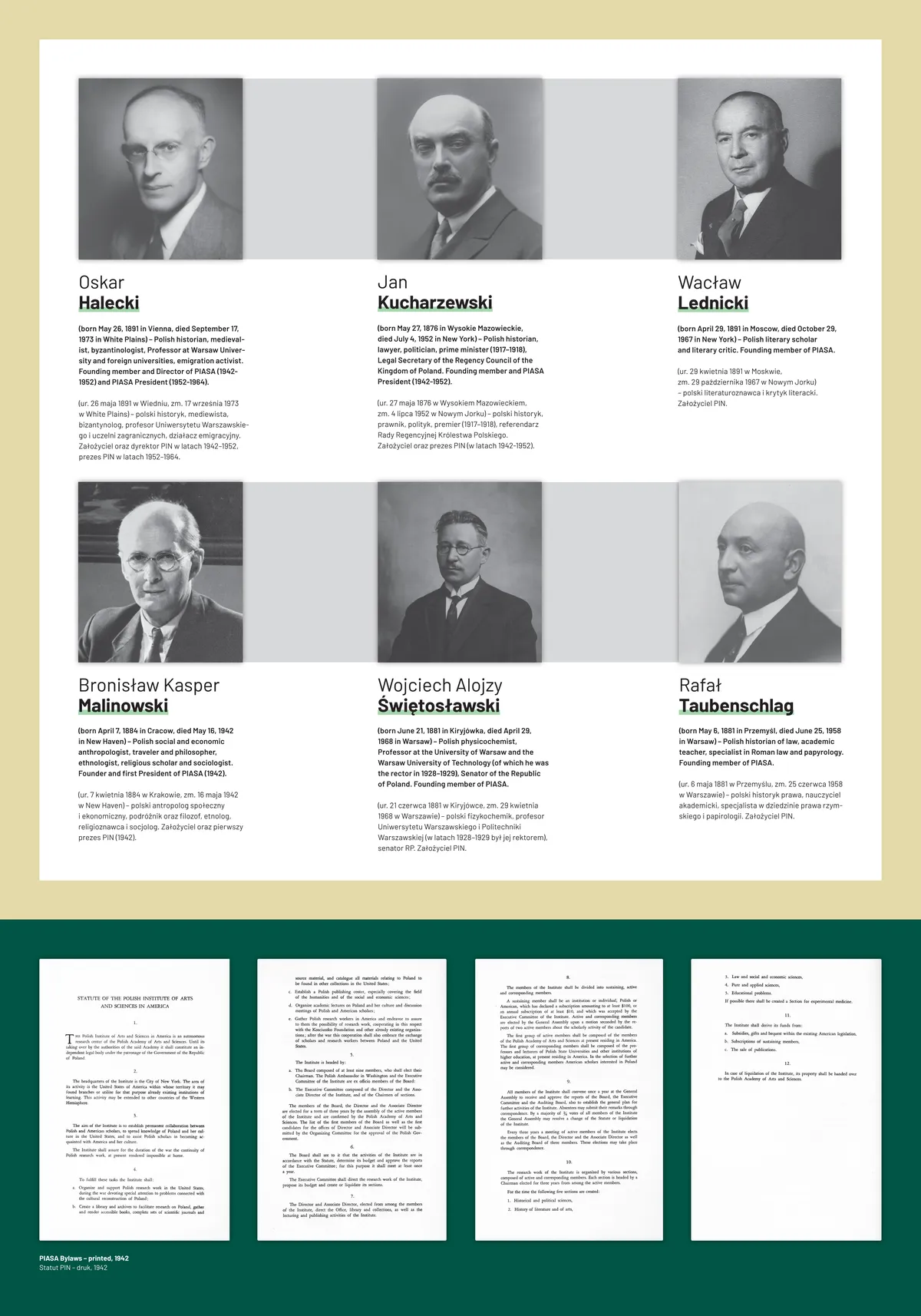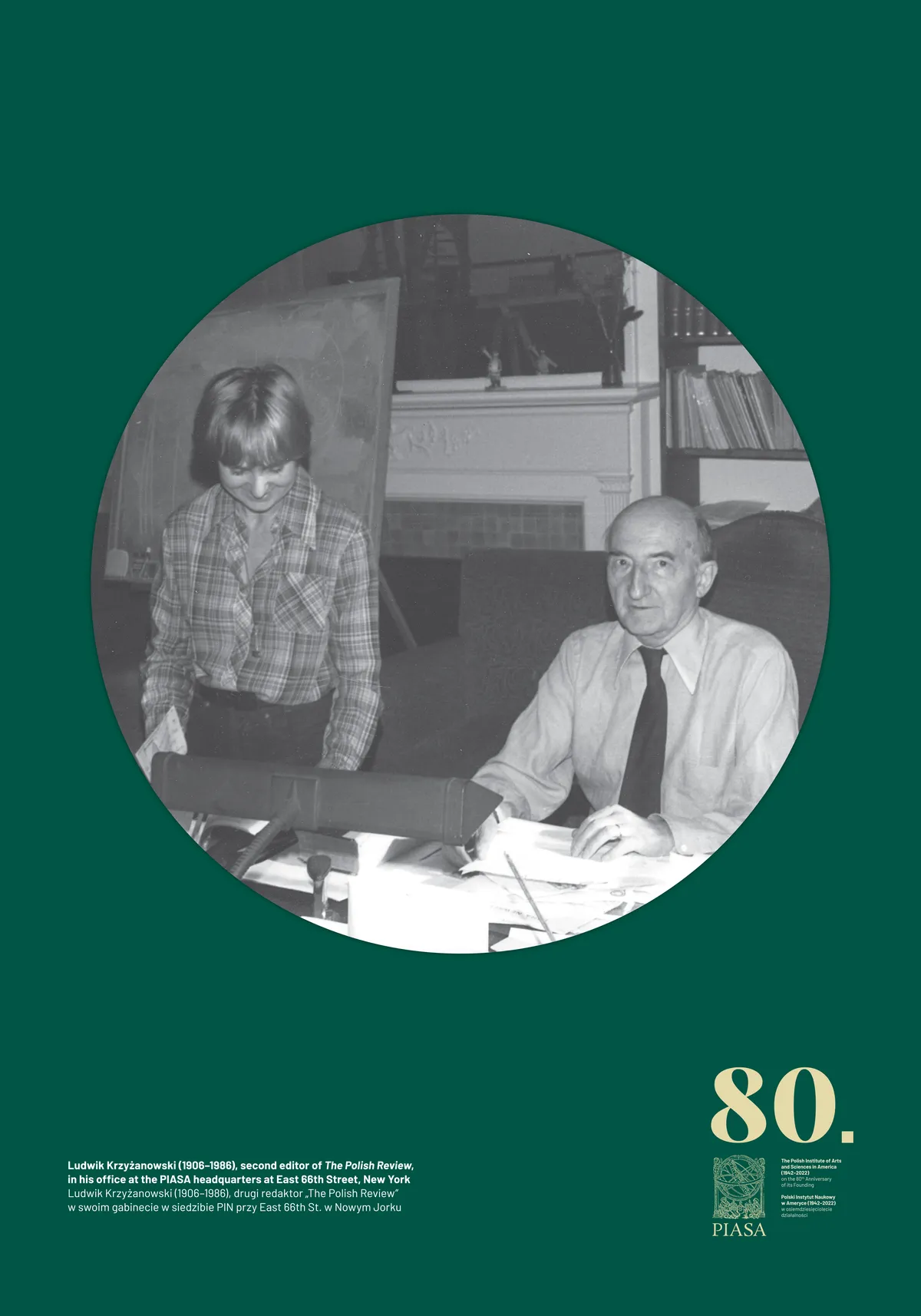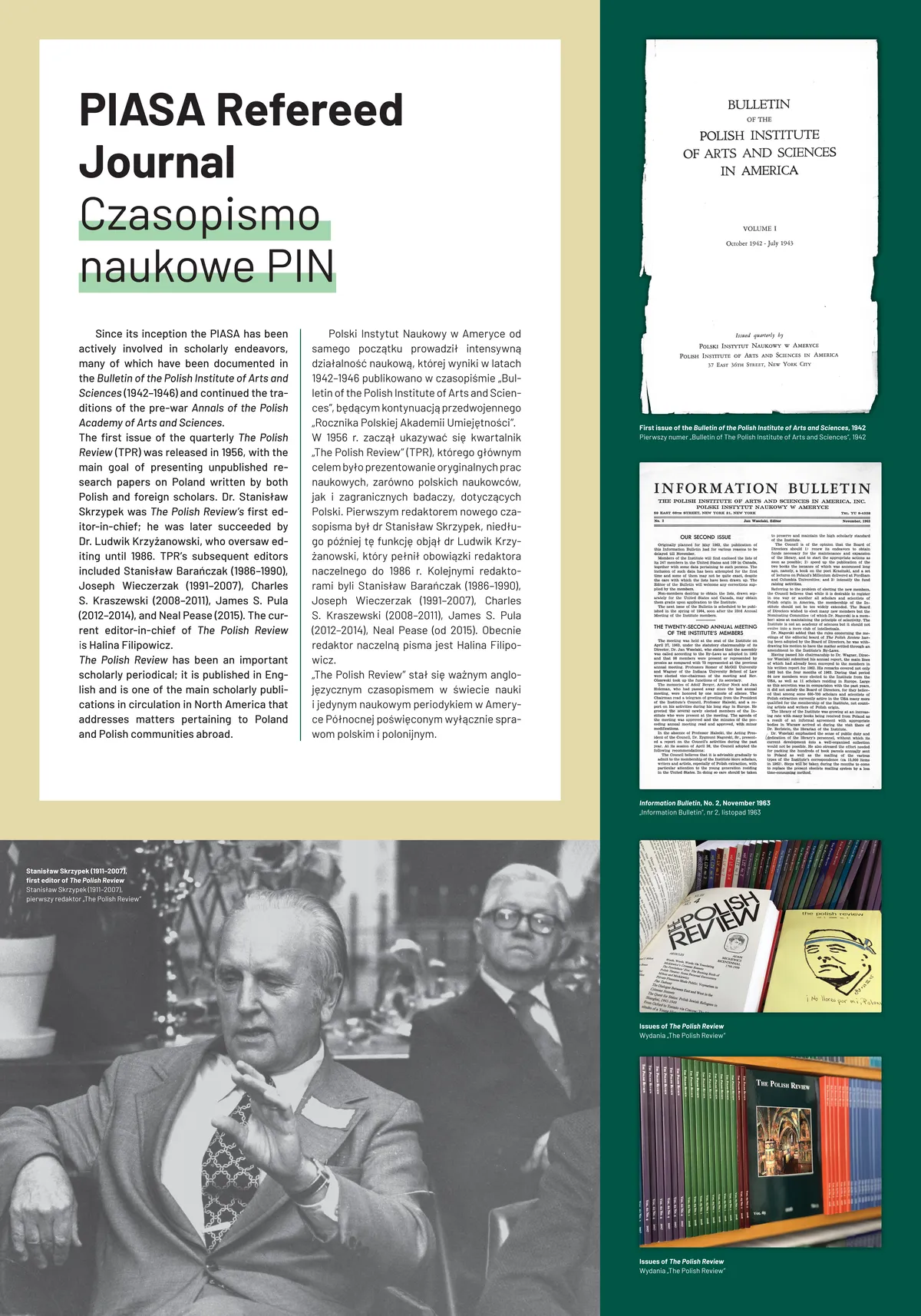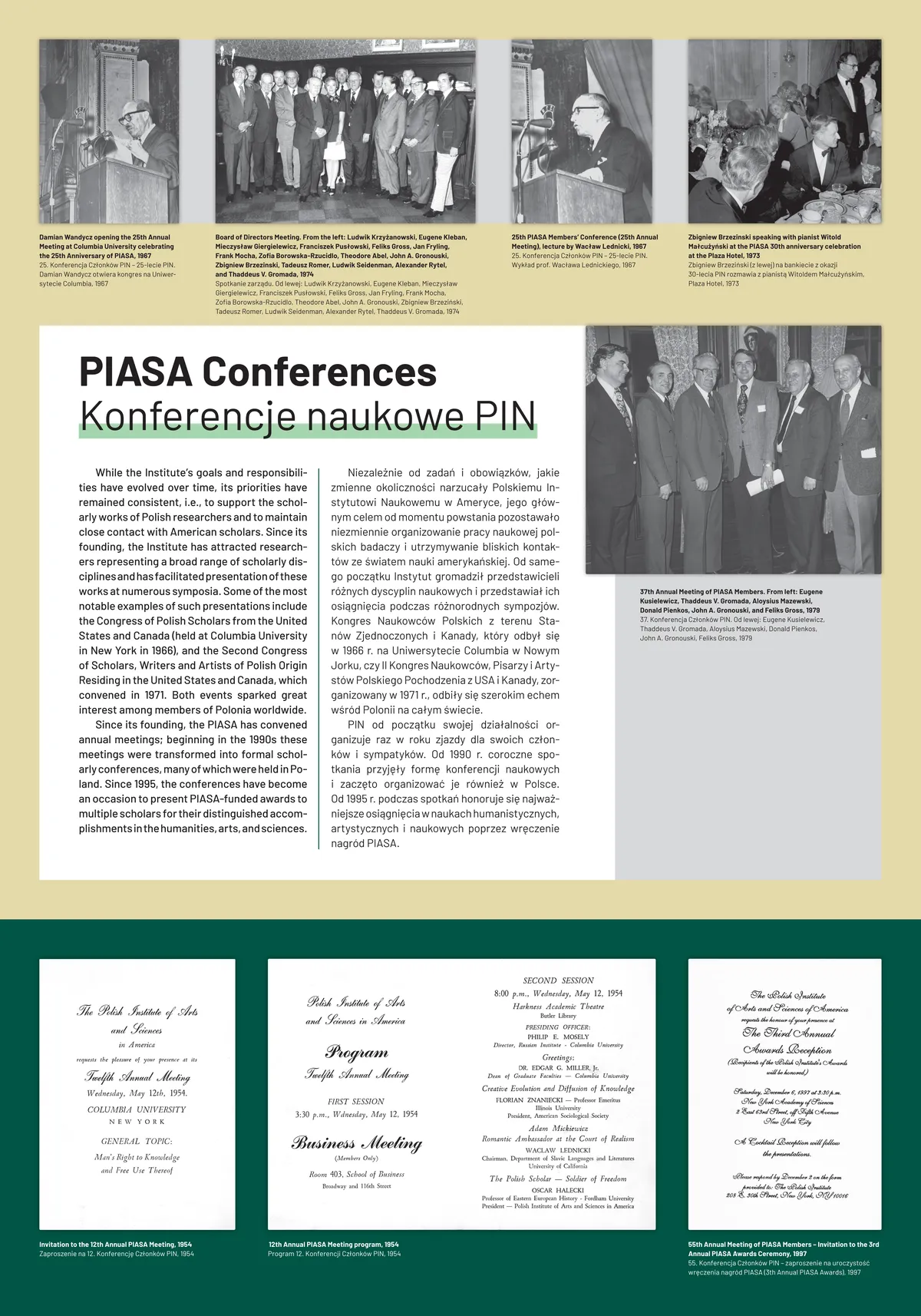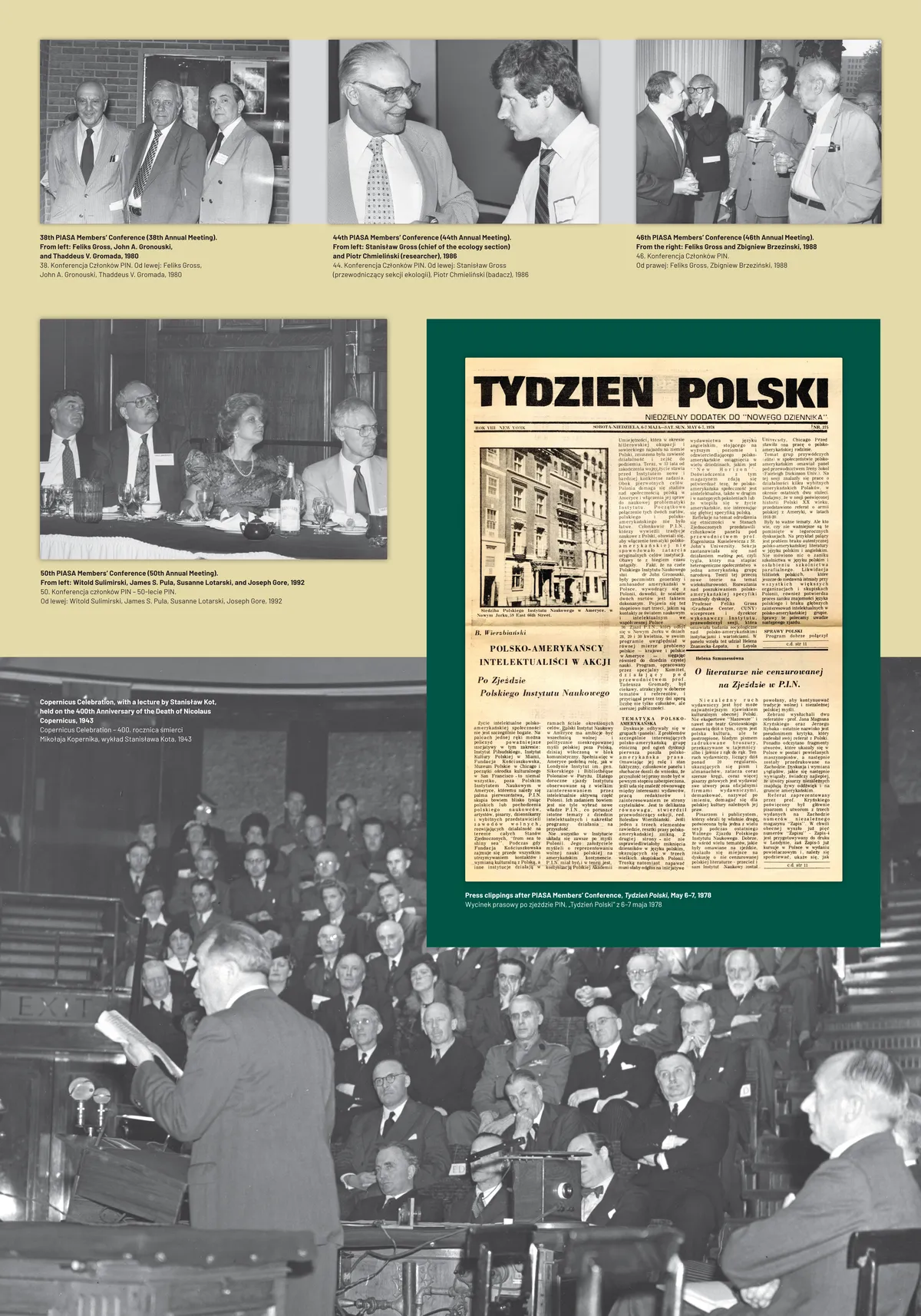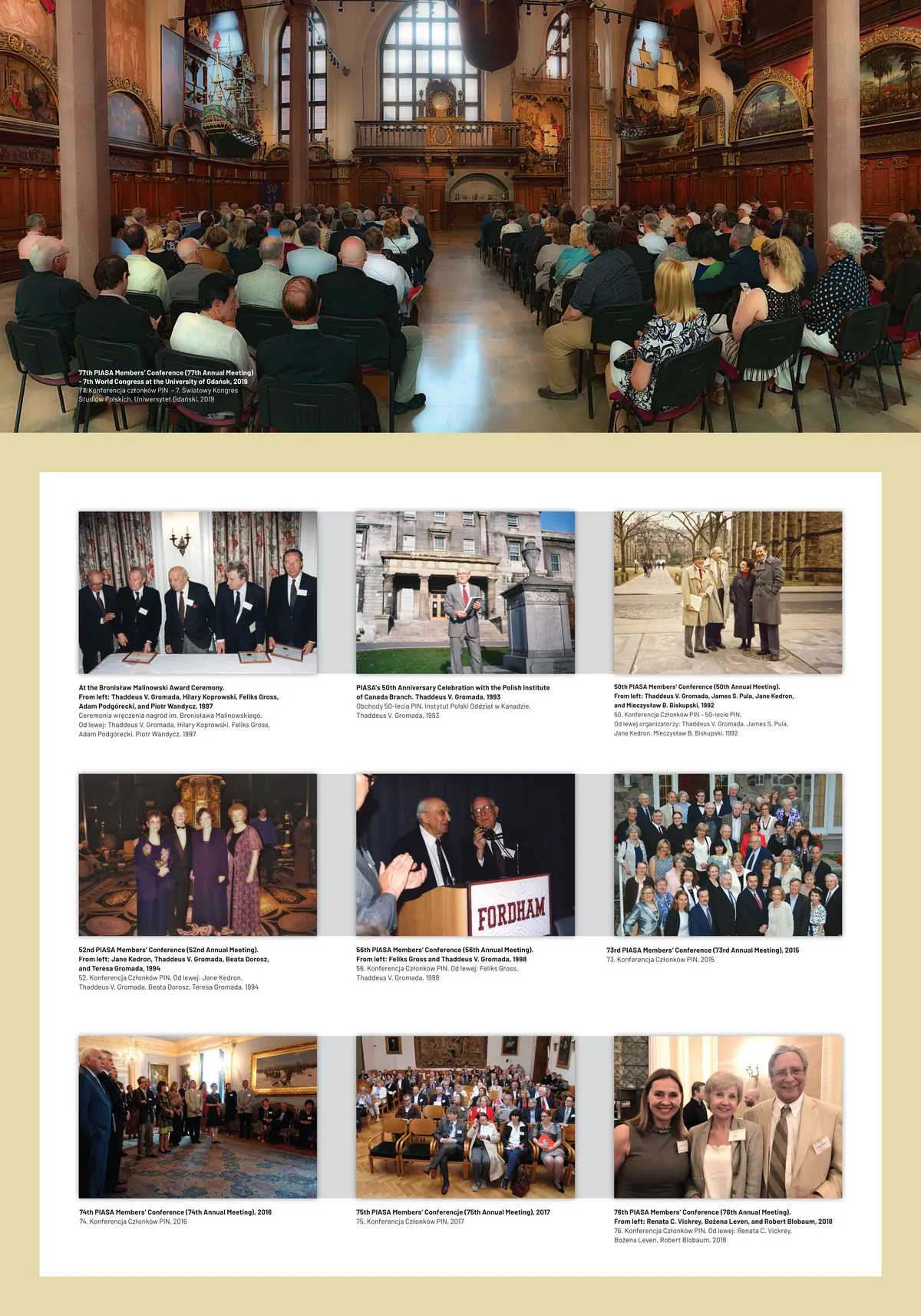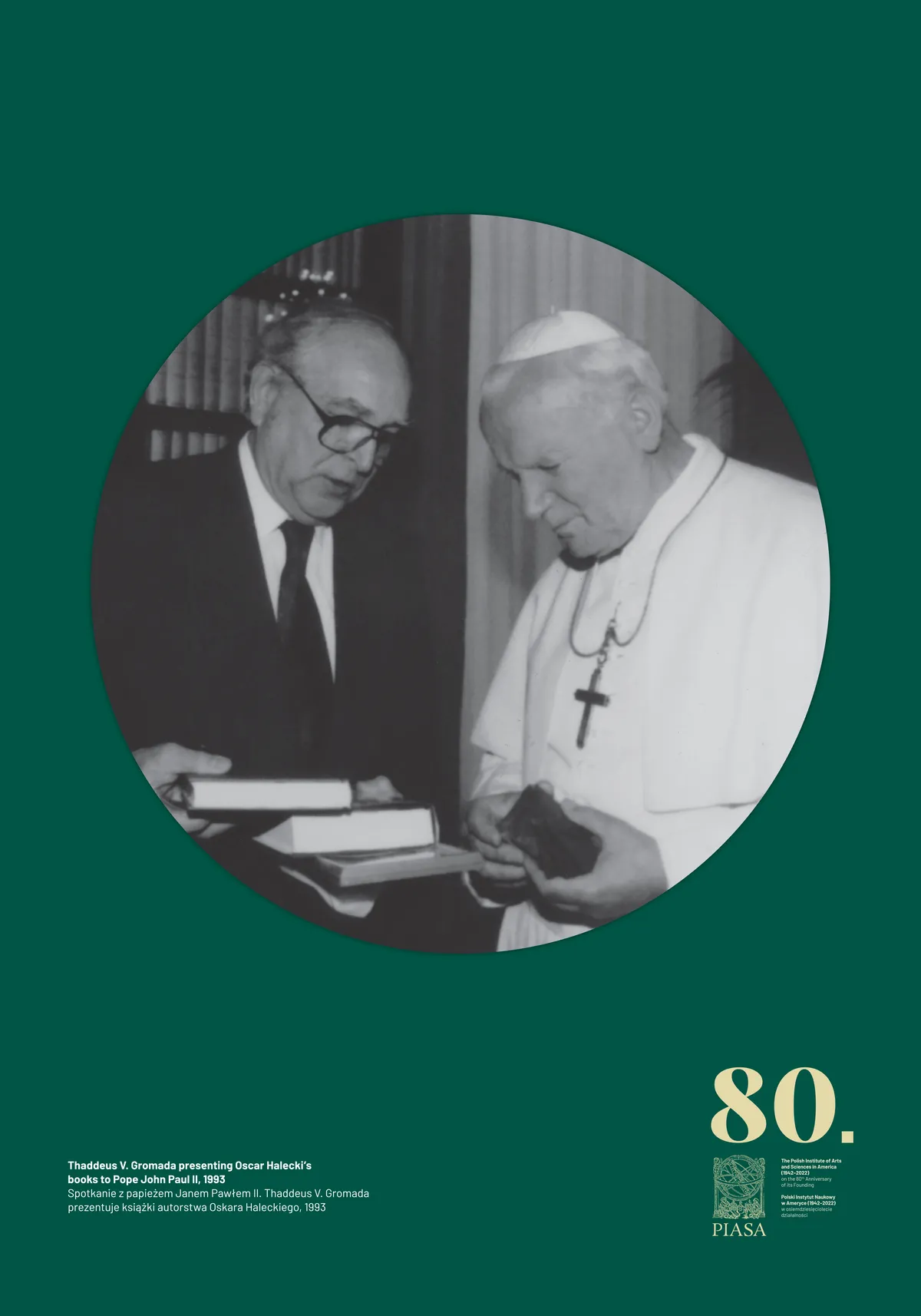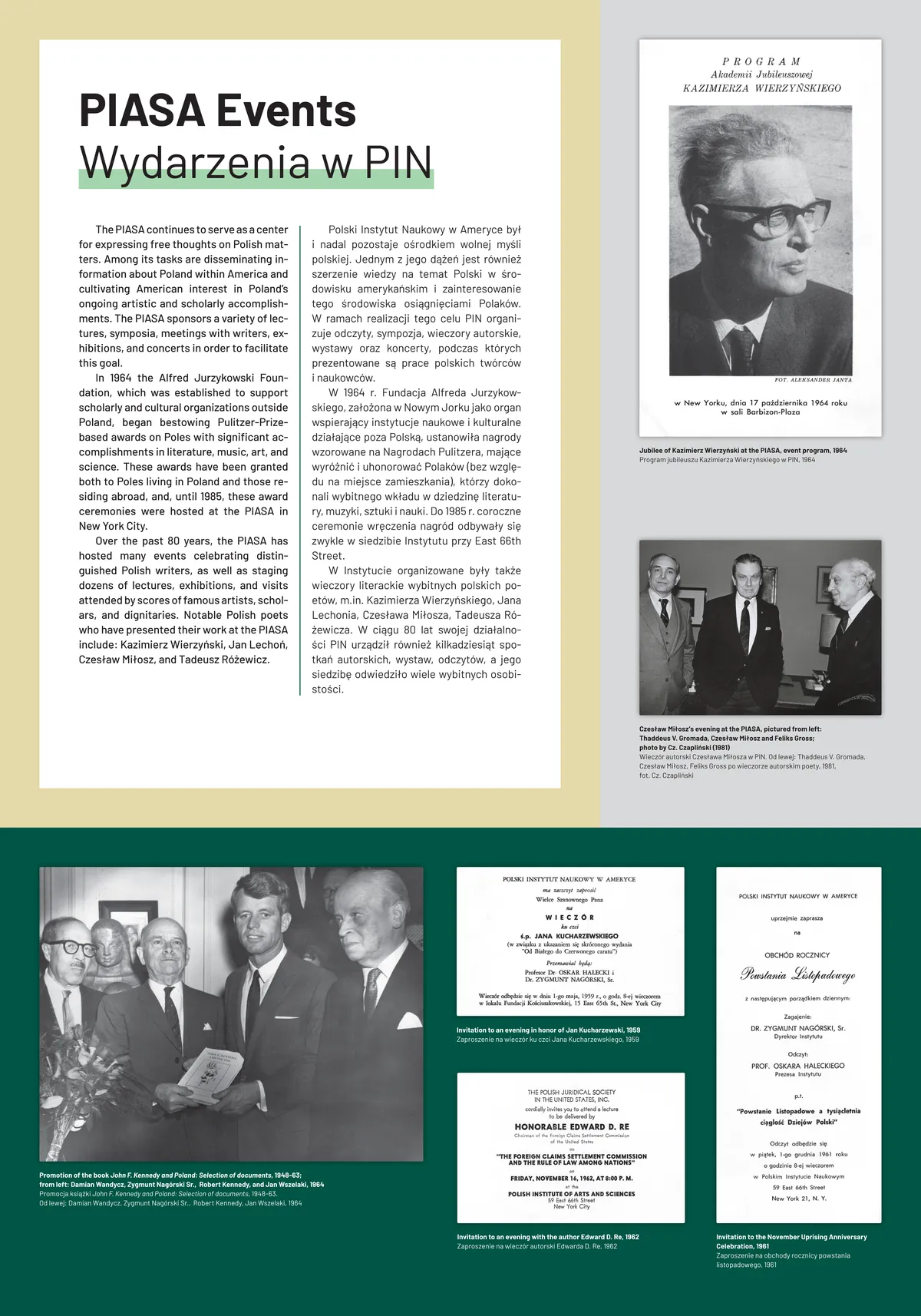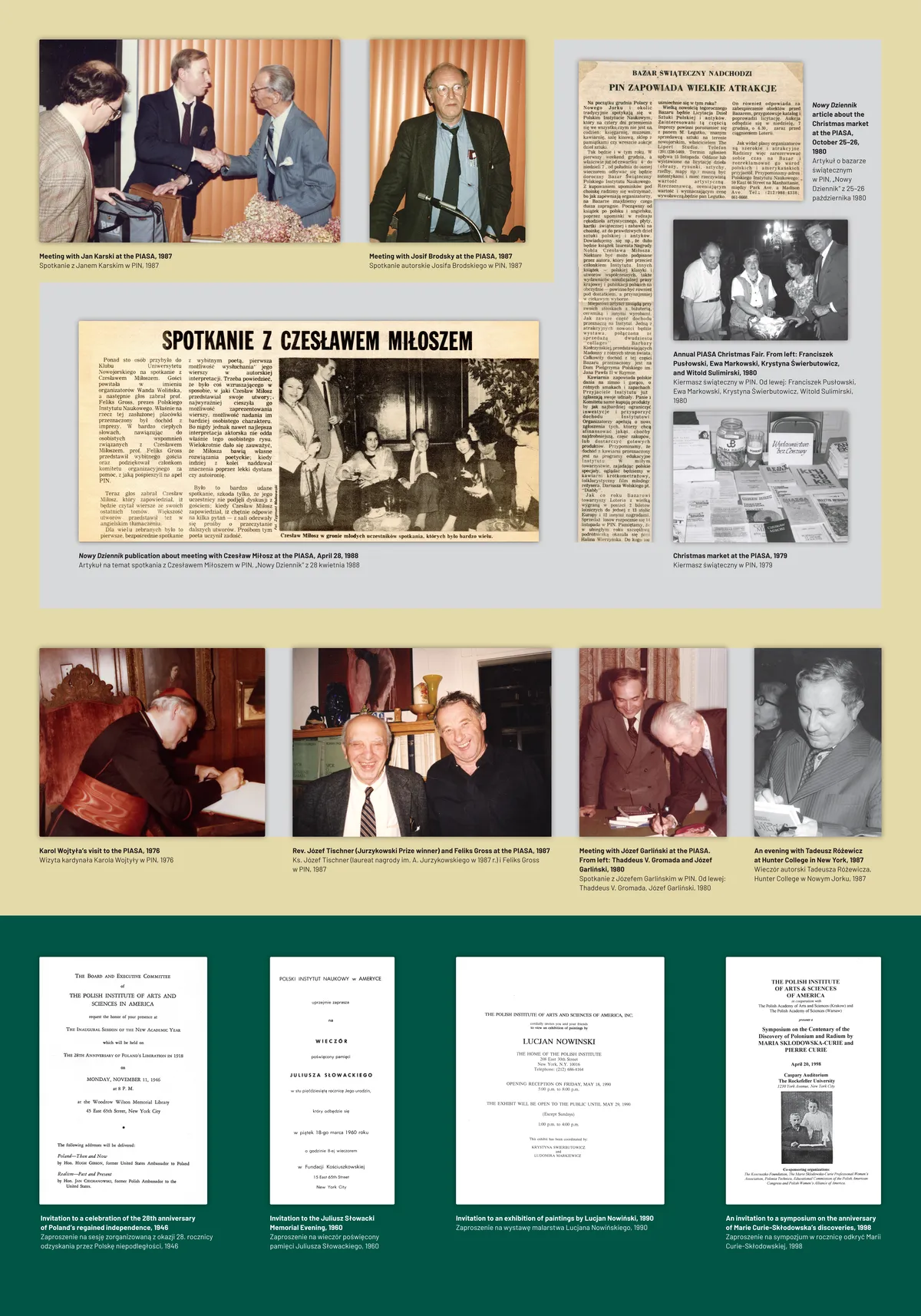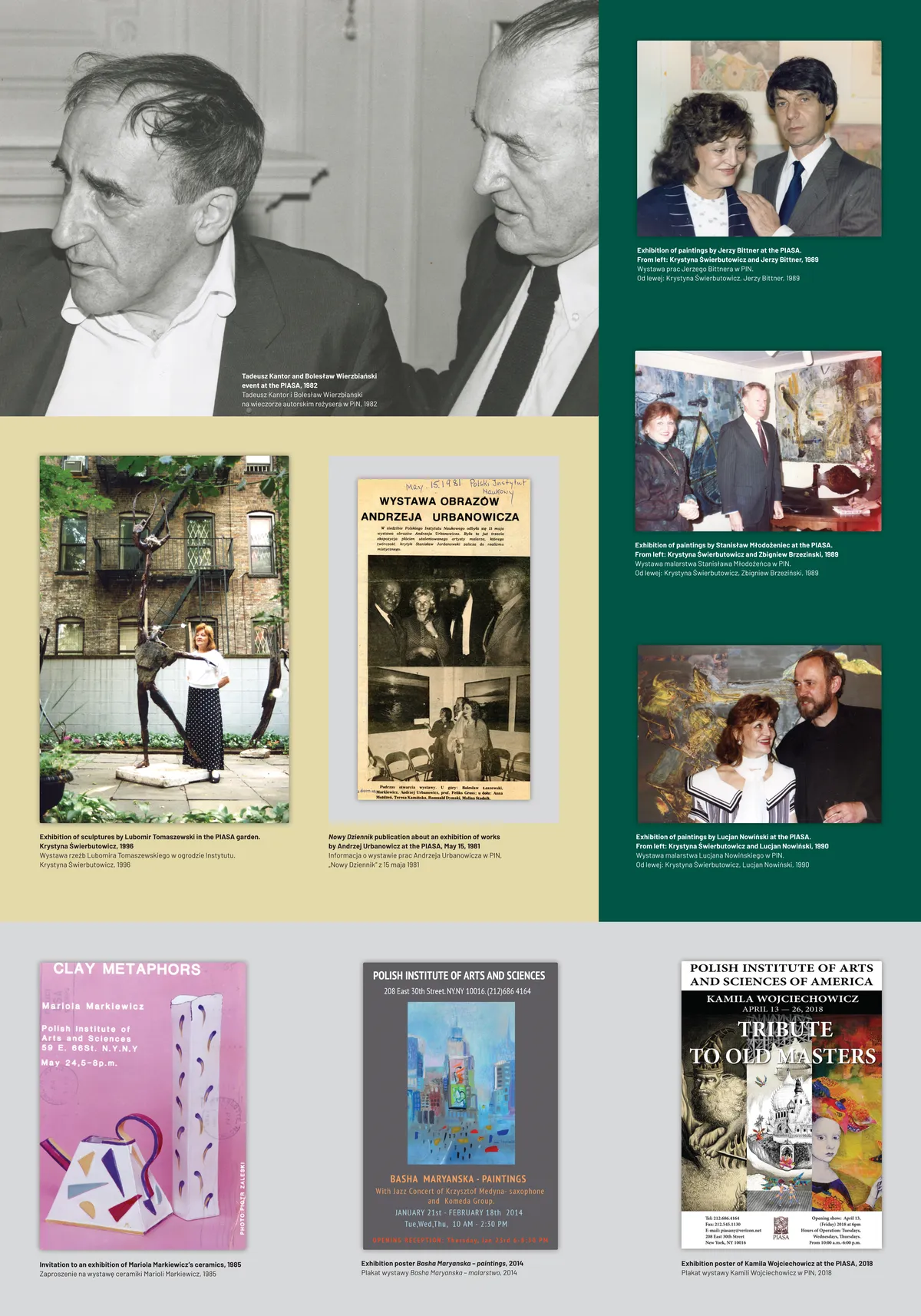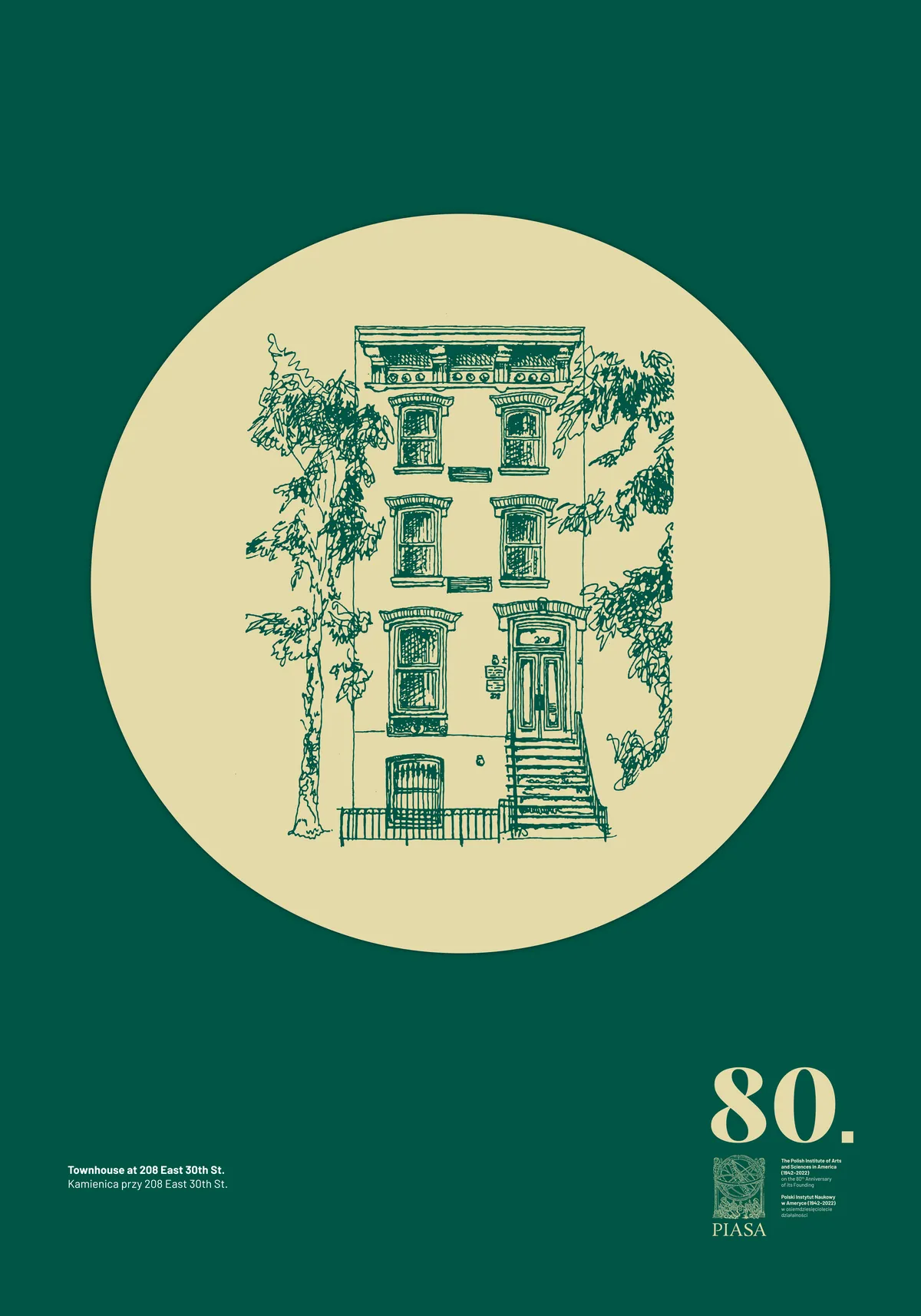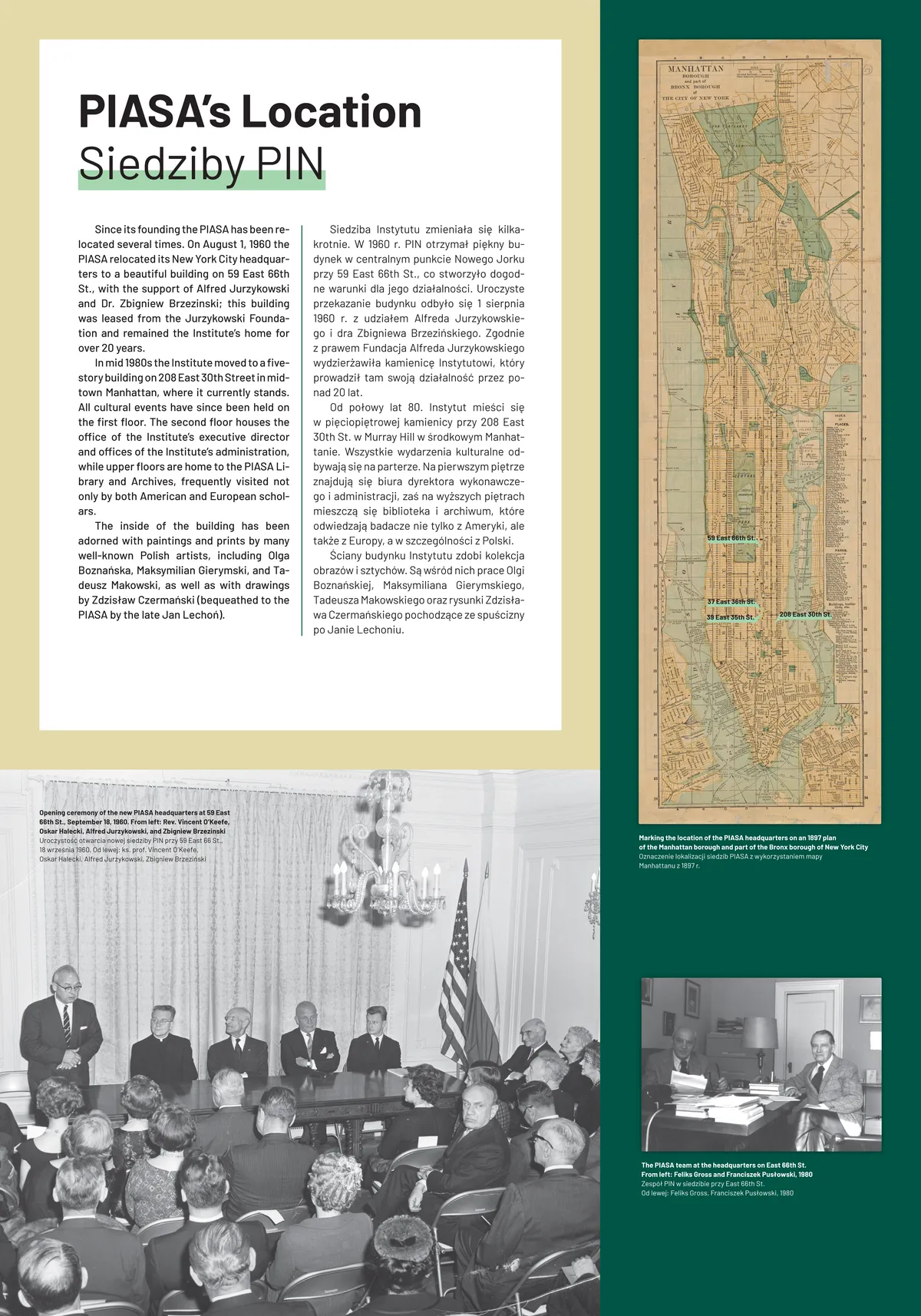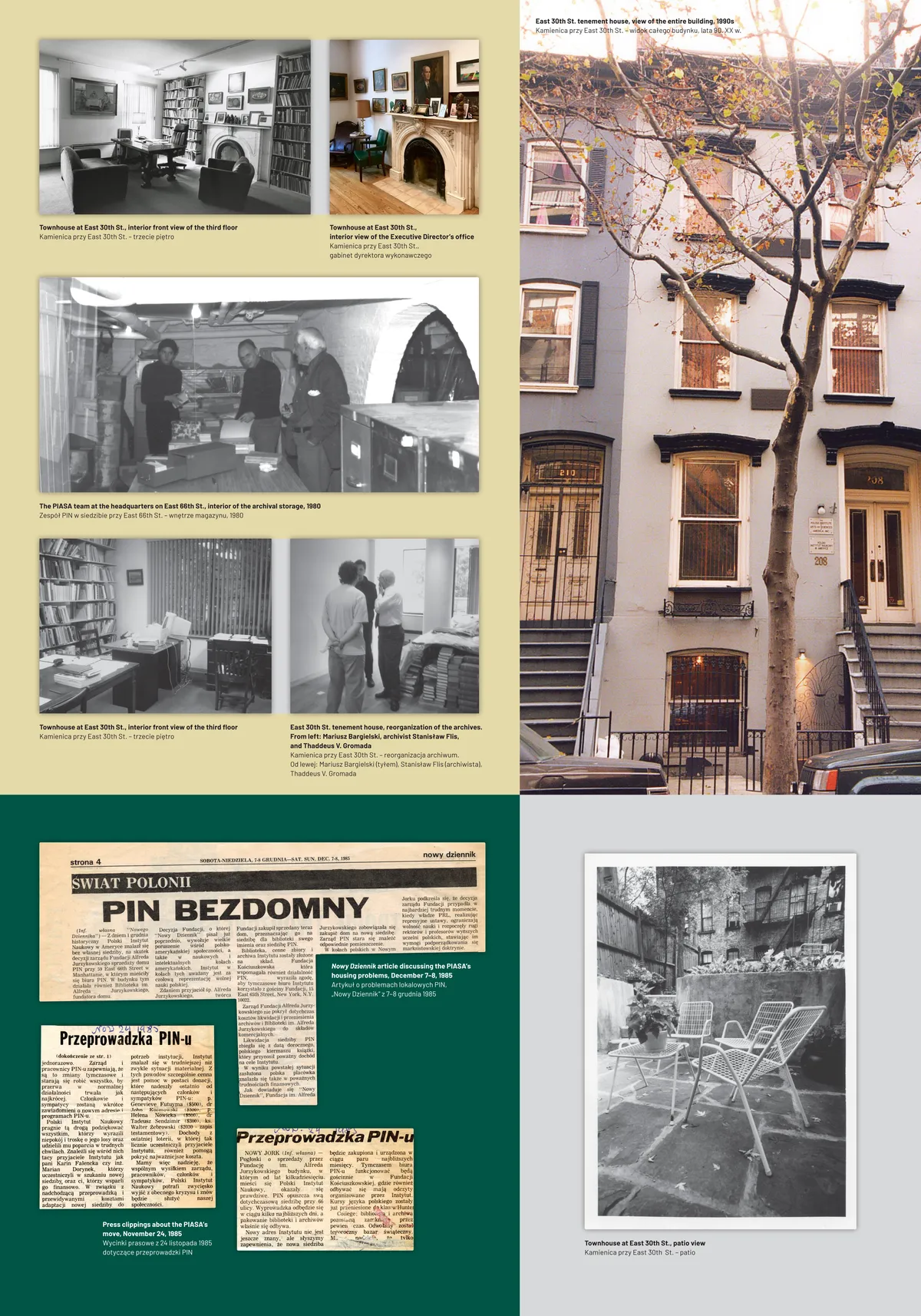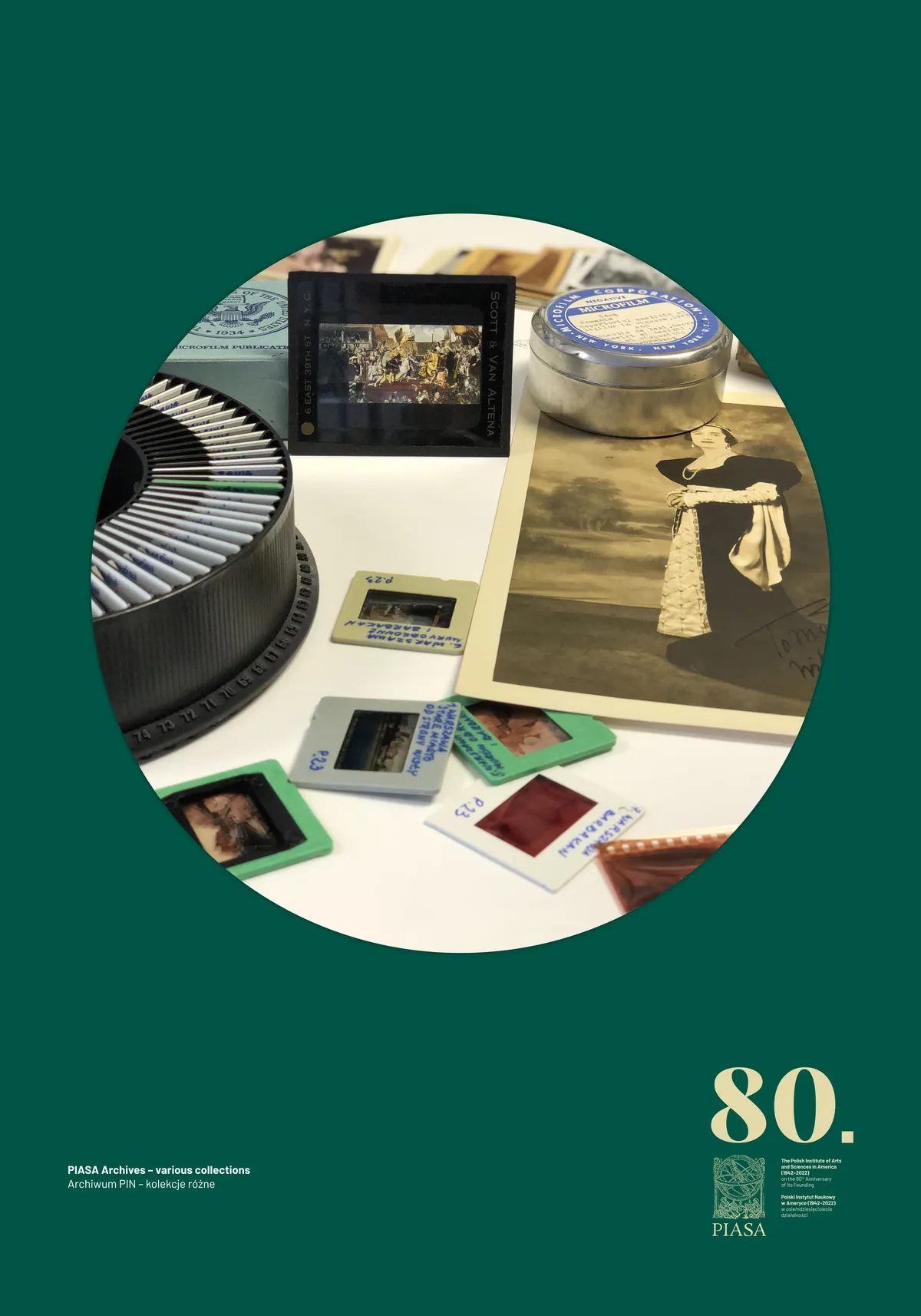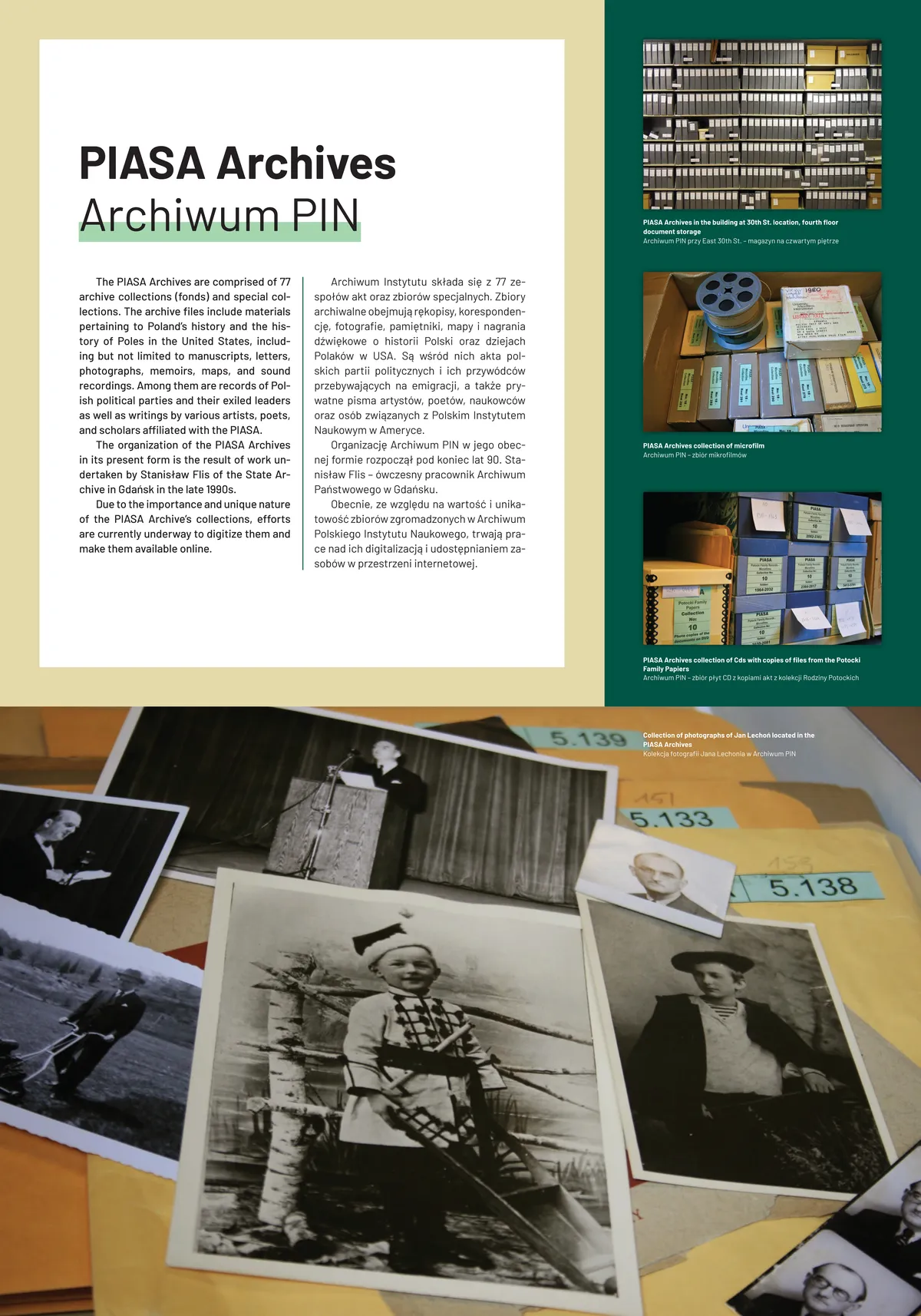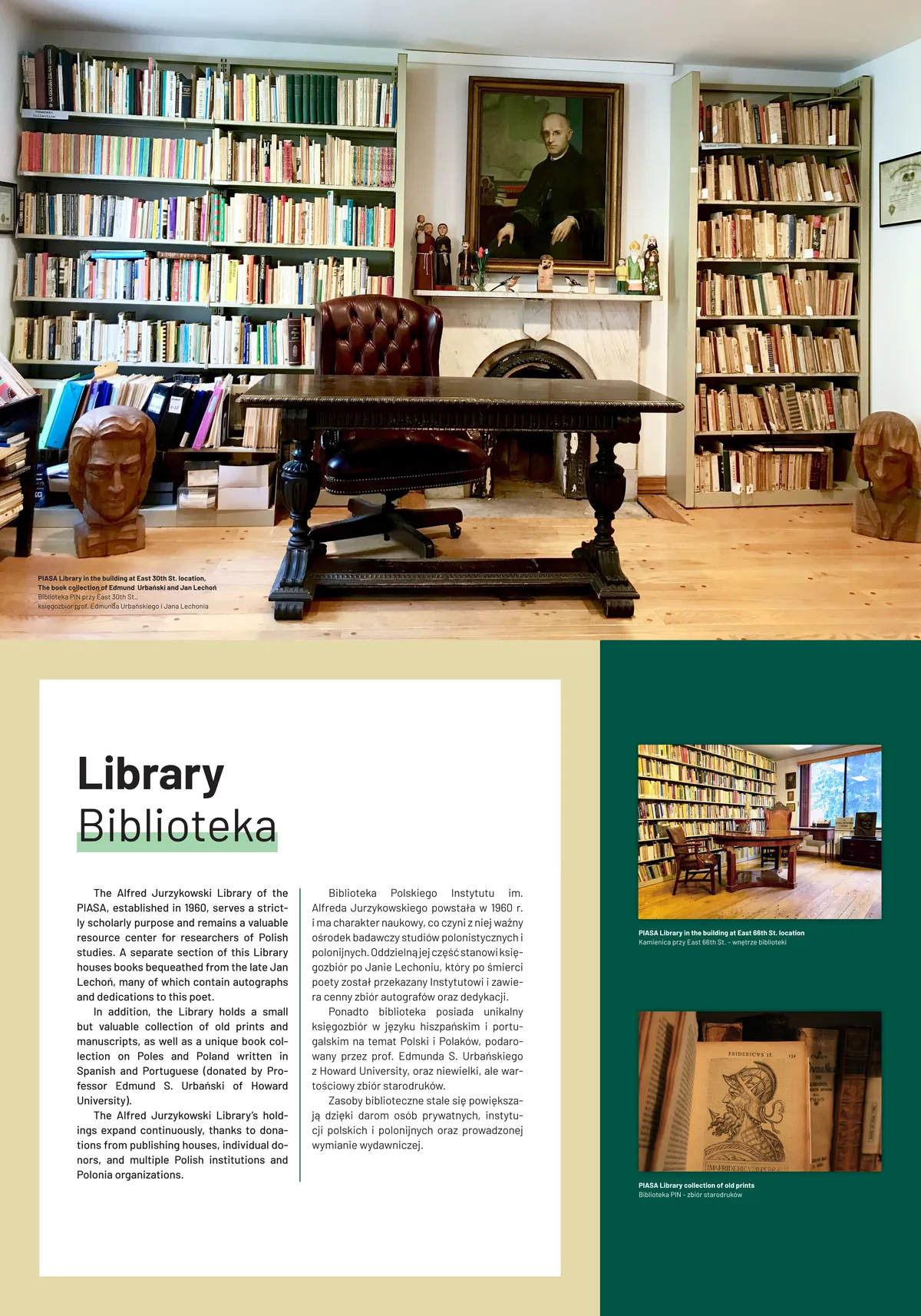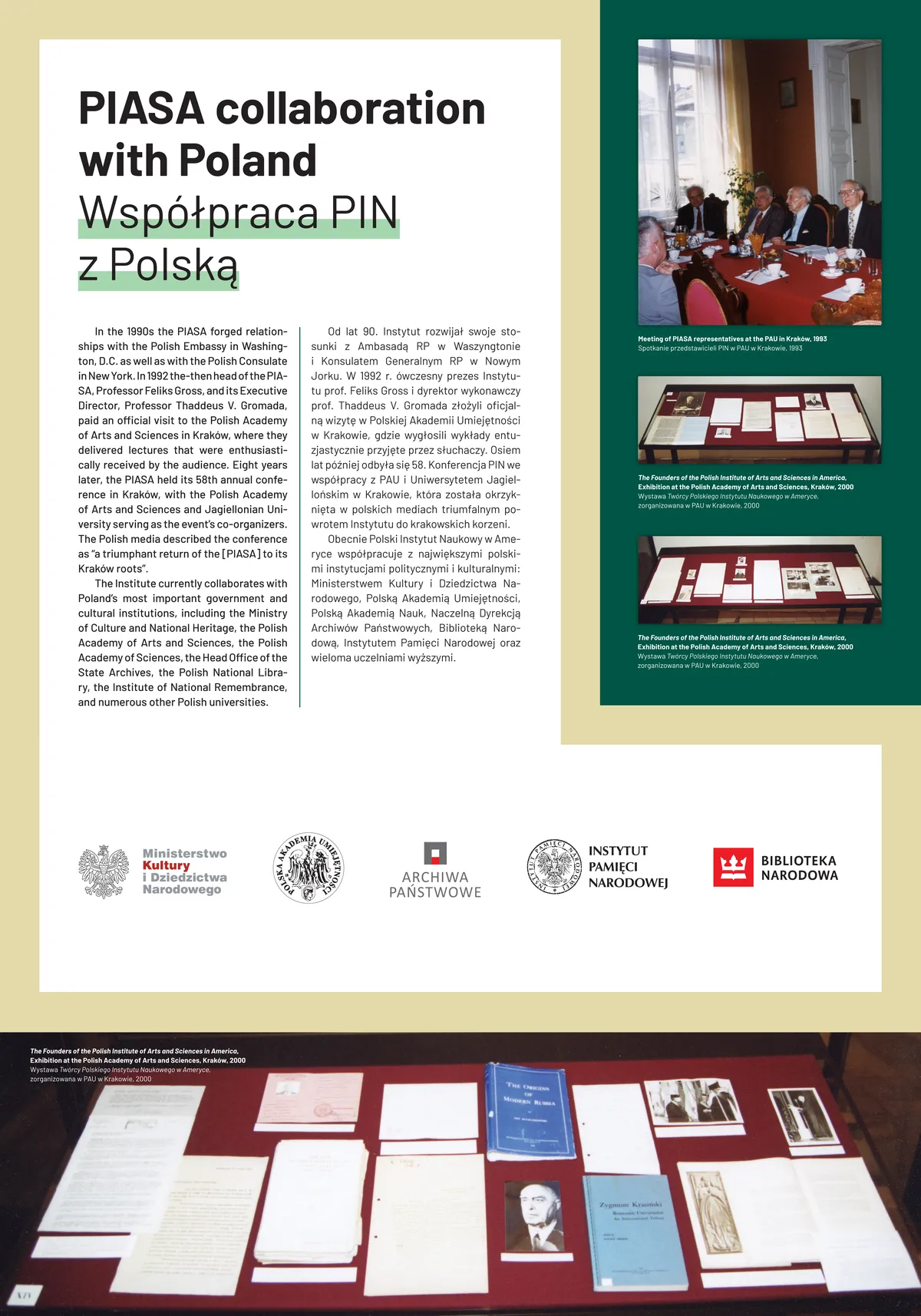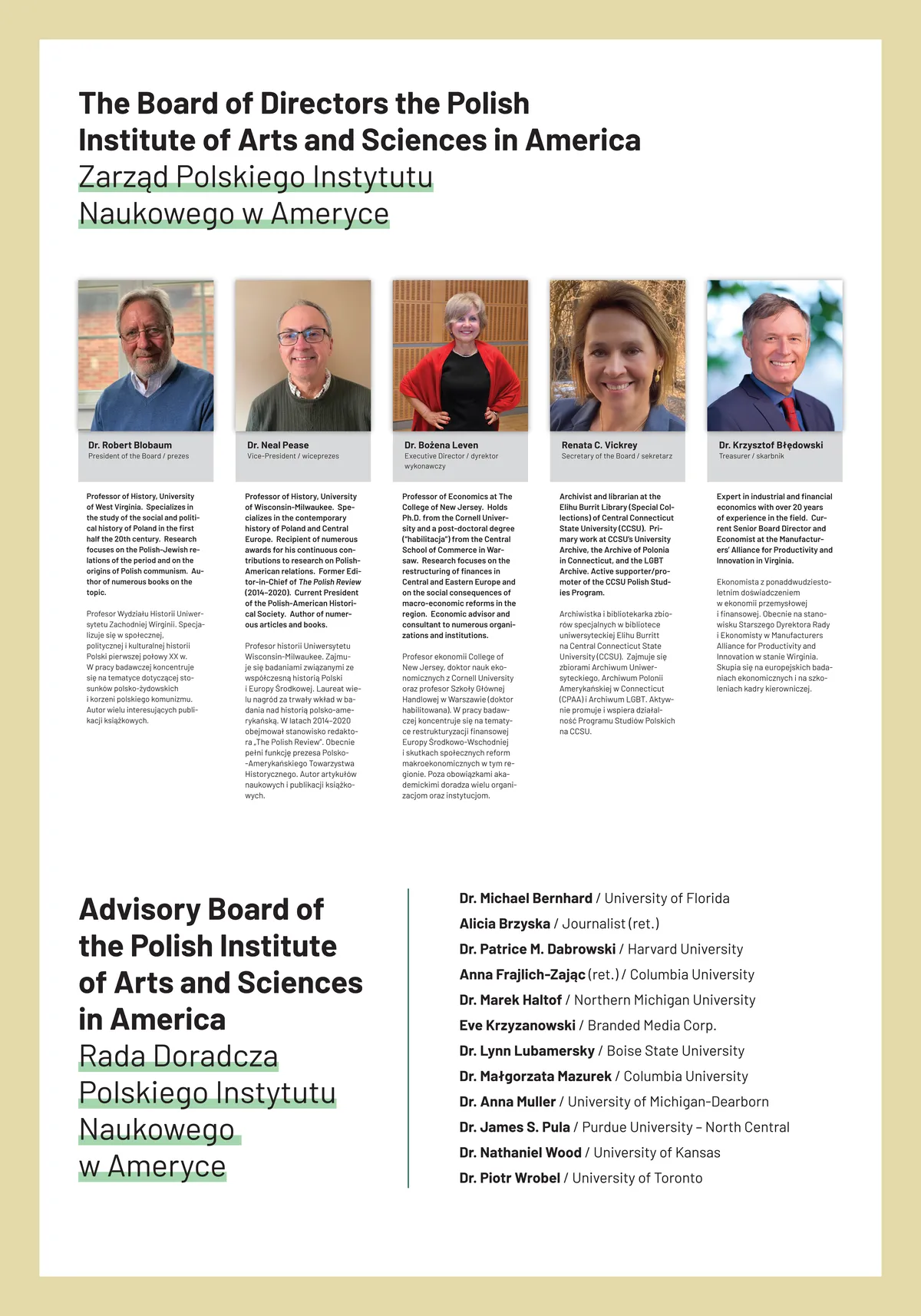Invariably for 80 years – the center of Polish art and sciences
We shall devote overselves exlusively and strickly to scientific and cultural work, whether in philosophy, the natural sciences or the social sciences (…)
BRONISŁAW MALINOWSKI
The First President of the PIASA
The Polish Institute of Arts and Sciences, founded in 1942 by a small group of Polish academicians during the German occupation of Poland, remains guided by its wartime principles. When we think of PIASA’s founders, people like the pioneering anthropologist and the organization’s first president Bronisław Malinowski and its first executive director, the great historian Oskar Halecki, and the circumstances in which PIASA came into being, we should not be surprised that these guiding principles are independence and integrity. Institutionally sponsored work in the arts and sciences, and the cultural field more generally, for which independent thinking is necessary to innovation, was not possible in Poland then, and was no less difficult during the first decade of the Cold War and the communist era in Poland. These historical circumstances required that this “Polish academy in exile” establish itself permanently on North American soil. Though one might think that the end of the Cold War and communism should have made such concerns mute, our own hyper-partisan day and age seem to have resurrected them and provide new justification for an organization like PIASA. These principles may need to be reinterpreted to fit the requirements of our day—to defend the integrity of independent scholarship and cultural work about and related to Poland in a manner that doesn’t come off as partisan itself. This, however, doesn’t make these principles any less relevant. Maintaining that fine balance may not be easy, but it is crucial to the integrity of our organization. In addition to what I have written about PIASA’s traditions, it is also important to note that we live in a time of change. Not that PIASA hasn’t experienced change before, beginning with its Americanization during the middle decades of the Cold War. The reestablishment of associational ties between PIASA and the academies in Poland after the Cold War was also a game-changer, making possible conferences in Poland, such as this year’s in Białystok that brings together scholars from Poland, Europe more generally, and North America for what is truly a trans-continental Polish Studies gathering. Consequently, PIASA is experiencing an internationalization of its general membership, in the composition of contributors to its flagship journal The Polish Review, and in its various activities, made easier by new virtual technologies that transcend borders and oceans. The transformation we see occurring in PIASA is also a generational one; within its Board of Directors, there has been something akin to a changing of the guard. As we reinvent the organization while rededicating ourselves to PIASA’s basic principles, we look forward to the future with confidence.
D R . R O B E R T B L O B A U M
PIASA President

